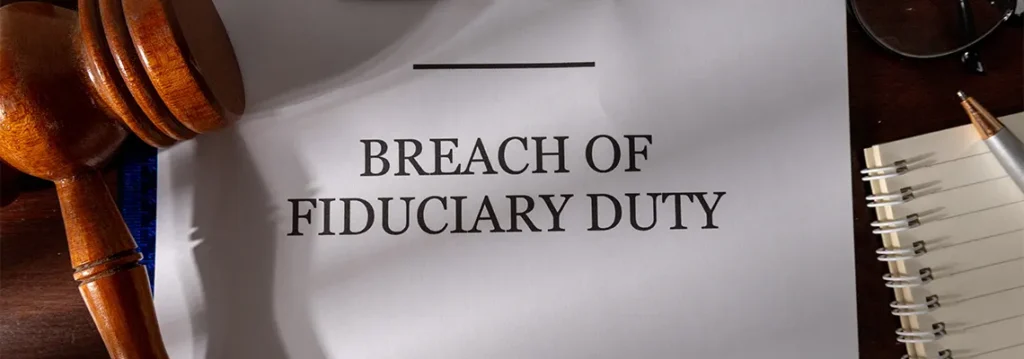Navigating the probate process can be challenging, especially when dealing with mortgaged property in Texas. This comprehensive guide aims to demystify the complexities of handling mortgaged property during probate, offering practical advice and a clear roadmap for executors, administrators, and beneficiaries.
Understanding the Probate Process in Texas
Probate is the legal process through which a deceased person’s assets are distributed according to their will or state law if there is no will. In Texas, probate can be relatively straightforward compared to other states, but it still requires careful attention to detail, especially when real estate with an outstanding mortgage is involved.
The Role of the Executor
The executor, appointed by the will or court, manages the estate, including any mortgaged property. Their duties include notifying creditors, paying debts, and distributing assets to beneficiaries. Handling a mortgaged property requires the executor to understand the mortgage terms and ensure compliance with state laws and the lender’s requirements.
Initial Steps: Identifying and Valuing the Mortgaged Property
- Locate and Secure Property: The first step is to locate and secure the mortgaged property. This includes ensuring the property is maintained and that property taxes and insurance are up to date.
- Appraise the Property: An appraisal determines the current market value of the property. This step is crucial for understanding the estate’s overall value and making informed decisions about whether to keep, sell, or transfer the property.
- Review the Mortgage: The executor must review the mortgage documents to understand the outstanding balance, interest rate, and any due payments. This information is vital for managing the estate’s finances and planning the next steps.
Notifying the Mortgage Lender
Texas law requires the executor to notify all creditors, including mortgage lenders, of the decedent’s death. This notification should be done in writing and include a certified copy of the death certificate. The lender will typically respond with information on the outstanding loan balance and payment options.

Options for Dealing with Mortgaged Property
Once the property is identified, valued, and the lender notified, the executor and beneficiaries have several options:
- Pay Off the Mortgage: If the estate has sufficient liquid assets, paying off the mortgage in full may be the simplest solution. This option avoids interest accrual and future payments, allowing the property to be transferred to beneficiaries free of debt.
- Continue Mortgage Payments: If paying off the mortgage isn’t feasible, the estate can continue making regular mortgage payments. This option requires careful management of the estate’s cash flow and may necessitate renting out the property to cover the mortgage payments.
- Sell the Property: Selling the mortgaged property can provide funds to pay off the mortgage and distribute remaining assets to beneficiaries. The executor must obtain court approval for the sale, settle the mortgage from the sale proceeds, and distribute any surplus to the estate.
- Transfer the Mortgage: In some cases, the mortgage can be transferred to a beneficiary who wishes to keep the property. The lender must approve the transfer, and the beneficiary must meet the lender’s qualifications to assume the mortgage.
Handling a Short Sale or Foreclosure
If the property’s value is less than the outstanding mortgage balance, a short sale or foreclosure may be necessary. A short sale involves selling the property for less than the mortgage balance with the lender’s approval. Foreclosure, on the other hand, is initiated by the lender to recover the loan amount. Both options have significant legal and financial implications and require careful consideration and legal advice.
Tax Implications
Dealing with mortgaged property during probate has tax implications. The estate may be responsible for property taxes, capital gains taxes on the sale, and potential income taxes if the property is rented. Consulting with a tax advisor ensures compliance with tax laws and helps minimize the estate’s tax liability.
Challenges and Common Issues
- Title Issues: Ensuring clear title to the property is crucial. Title issues can arise if the decedent had unresolved debts, liens, or disputes over property ownership. Working with a title company or real estate attorney can help resolve these issues.
- Heir Disputes: Disagreements among heirs regarding the mortgaged property can complicate probate proceedings. Mediation or legal intervention may be necessary to resolve disputes and reach a fair agreement.
- Maintenance and Upkeep: Maintaining the property during probate is essential to preserve its value. This includes regular maintenance, paying utility bills, and addressing any repairs promptly.
Practical Tips for Executors
- Keep Detailed Records: Maintaining thorough records of all transactions, communications with the lender, and property-related expenses is crucial. This documentation helps protect the executor and estate from potential disputes and legal challenges.
- Communicate with Beneficiaries: Keeping beneficiaries informed about the status of the mortgaged property and the estate’s financial situation fosters transparency and reduces the likelihood of disputes.
- Seek Professional Advice: Working with an experienced probate attorney, real estate agent, and financial advisor ensures compliance with legal requirements and makes informed decisions regarding the mortgaged property.

Case Study: Real-Life Scenario
Let’s consider a hypothetical case study to illustrate the process. Jane Doe, a Texas resident, passed away, leaving behind a will naming her son, John, as the executor. Jane owned a mortgaged property with an outstanding balance of $150,000. The property’s appraised value was $200,000.
- Initial Steps: John secured the property, notified the lender of his mother’s death, and obtained an appraisal to determine the property’s value.
- Reviewing Options: John reviewed the estate’s assets and liabilities. He decided that selling the property was the best option to settle the mortgage and distribute the remaining assets to beneficiaries.
- Selling the Property: John listed the property for sale with a real estate agent, obtained court approval for the sale, and sold the property for $210,000. After paying off the mortgage and covering selling expenses, $50,000 remained for distribution to beneficiaries.
- Distributing Assets: John distributed the remaining proceeds to the beneficiaries according to the will, ensuring that all debts were settled, and the probate process was completed smoothly.
Legal and Financial Assistance
Hiring a Probate Attorney
A probate attorney can be invaluable in navigating the complexities of probate law, especially when dealing with mortgaged property. An attorney can help with:
- Filing the necessary court documents.
- Communicating with creditors and mortgage lenders.
- Ensuring compliance with Texas probate laws.
- Representing the estate in court if disputes arise.

Engaging a Real Estate Agent
A knowledgeable real estate agent can assist in appraising, listing, and selling the property. They provide market insights, handle negotiations, and ensure the sale of the property at its fair market value, thereby maximizing the return for the estate.
Consulting a Financial Advisor
A financial advisor can help manage the estate’s assets, plan for tax implications, and provide strategies for maintaining cash flow during the probate process. Their expertise can be crucial in making informed financial decisions that benefit the estate and its beneficiaries.
Long-Term Considerations for Beneficiaries
Retaining the Property
If a beneficiary decides to retain the mortgaged property, they must consider long-term financial responsibilities, including mortgage payments, property taxes, insurance, and maintenance costs. It is important to assess their financial capability to sustain these expenses without undue hardship.
Generating Income from the Property
Renting out the property can generate income to cover mortgage payments and other expenses. This option requires property management skills or the services of a property management company to handle tenant relations, maintenance, and rent collection.
Planning for Future Probate
Beneficiaries who retain mortgaged property should plan for their own estate to avoid future probate complexities. Creating a clear will, establishing a living trust, or other estate planning tools can help ensure a smooth transition of property to their heirs.
Ethical Considerations
Fiduciary Duty
As an executor, you have a fiduciary duty to act in the best interests of the estate and its beneficiaries. This includes making prudent financial decisions, avoiding conflicts of interest, and ensuring transparency in all dealings.
Conflict Resolution
Ethical dilemmas and conflicts among beneficiaries can arise during probate. Address these issues promptly and fairly, possibly through mediation or legal intervention, to maintain trust and ensure equitable estate settlement.
Honoring the Decedent’s Wishes
Above all, the executor’s primary responsibility is to honor the decedent’s wishes as outlined in the will. This includes making decisions that align with the decedent’s intentions and preserving their legacy.
The Probate Court’s Role
Oversight and Approval
The probate court oversees the administration of the estate, ensuring compliance with legal requirements and protecting the interests of creditors and beneficiaries. Executors must seek court approval for major actions, such as selling property or distributing assets, to ensure transparency and accountability.
Resolving Disputes
The probate court also serves to resolve disputes among beneficiaries, creditors, and other interested parties. The court may need to intervene to settle disagreements and ensure fair and lawful administration of the estate.
Conclusion: Navigating Mortgaged Property in Texas Probate
Dealing with mortgaged property during probate in Texas requires careful planning, clear communication, and a thorough understanding of legal and financial obligations. Executors and beneficiaries work together to navigate this complex process, ensuring they honor the decedent’s wishes and settle the estate fairly and efficiently. By following this comprehensive guide and seeking professional advice, you can manage mortgaged property in probate with confidence and clarity, ultimately achieving a successful resolution.








